An article posted a few weeks ago at The Atlantic entitled What Americans Don’t Get About Nordic Countries by Finnish native Anu Partanen offers some great insights into Northern European democracies that I don’t think have been addressed in any depth during this historic Democratic primary. Not that Finland, Norway, Denmark, or Sweden should have to be at the center of a U.S. election, but since Bernie Sanders has used them rhetorically — to great applause from millions of Americans — as models of what his reforms/revolution might look like in their full manifestation, I think it’s worth taking a closer look at what has made these countries’ models successful in their own citizens’ eyes and how Americans might find their own version of it, independent of this Democratic primary’s electoral outcome.
The question I — and I think many other folks who care about making the United States more economically, socially, and environmentally equitable — have is whether the enthusiasm for Senator Sanders’ vision for this country, especially among young people, can be harnessed into a sustained engine for change, and if so, how best to present and distribute this “renewable Bernergy” so it can be delivered to a majority of Americans in the sort of base load capacity required to operate a functioning clean-powered political, cultural, and psychological grid.
Framing it this way in my view serves two important purposes at this point in the ongoing political race:
- It puts the case Bernie is making into a context of larger systemic change that can’t just depend on the outcome of one presidential primary, so that the message can keep thriving even if this particular messenger doesn’t deliver, at least electorally speaking.
- It evokes the same challenges that the transformation to a comprehensive clean energy system is facing, namely the need for a radical overhaul of a default infrastructure that may be unsustainable but also happens to provide immediate comfort and reliability for the vast majority of the population.
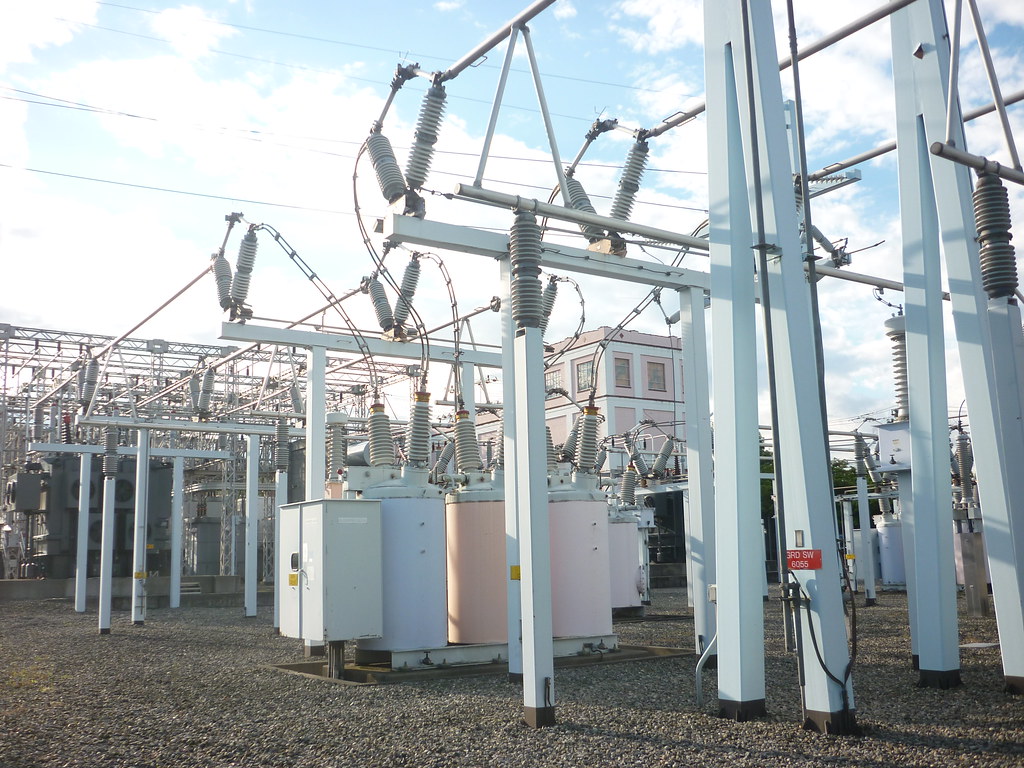
changing the power grid
With that said, allow me to jam a bit on the article. Let me preface that Partanen, who immigrated to the U.S. seven years ago, speaks of “Nordic countries,” but as a native German (and dual U.S. citizen) I can confirm that the basic premise of her piece pointing out a fundamental American misunderstanding of Euro-style social democracy applies not only to Scandinavian countries but my own country of birth and youth, as well as most other European democracies.
She begins her essay by describing this misconception among the Democratic primary candidates…
Bernie Sanders is hanging on, still pushing his vision of a Nordic-like socialist utopia for America, and his supporters love him for it. Hillary Clinton, meanwhile, is chalking up victories by sounding more sensible. “We are not Denmark,” she said in the first Democratic debate, pointing instead to America’s strengths as a land of freedom for entrepreneurs and businesses.
as well as among the Americans she talks to…
I hear these kinds of comments from Americans all the time—at cocktail parties and at panel discussions, in town hall meetings and on the opinion pages. Nordic countries are the way they are, I’m told, because they are small, homogeneous “nanny states” where everyone looks alike, thinks alike, and belongs to a big extended family. This, in turn, makes Nordic citizens willing to sacrifice their own interests to help their neighbors. Americans don’t feel a similar kinship with other Americans, I’m told, and thus will never sacrifice their own interests for the common good.
Basically, the thinking goes, these Northern Europeans are just a lot more enlightened, generous and community-oriented keepers of their sisters and brothers than Americans, which is touted as a great virtue in Sanders World, a bit naive and too-hard-to-achieve in Clinton World, and I may add, weak-kneed surrender milk by the ultimate DYI-survivalist wannabes in Trump & Cruz Cave.
The problem is that this entire narrative is based on a crucial fallacy, namely that Europeans are less selfish than Americans.
But this vision of homogenous, altruistic Nordic lands is mostly a fantasy. The choices Nordic countries have made have little to do with altruism or kinship. Rather, Nordic people have made their decisions out of self-interest. Nordic nations offer their citizens—all of their citizens, but especially the middle class—high-quality services that save people a lot of money, time, and trouble. This is what Americans fail to understand: My taxes in Finland were used to pay for top-notch services for me.
Could it really be that Europeans are just as selfish, if not more so, than Americans? Partanen goes on to list the things she gets in return for the marginally higher sales and income tax she pays in Finland, compared to her current place of residence in New York: a full year of parental leave, daycare for her kids, free college, grad school, nearly free health care, and a full year of partially paid disability leave. Sounds like a pretty good deal to me if you’re looking out for Number One, and at this point very much in line with what Bernie Sanders is trying to sell the American people.
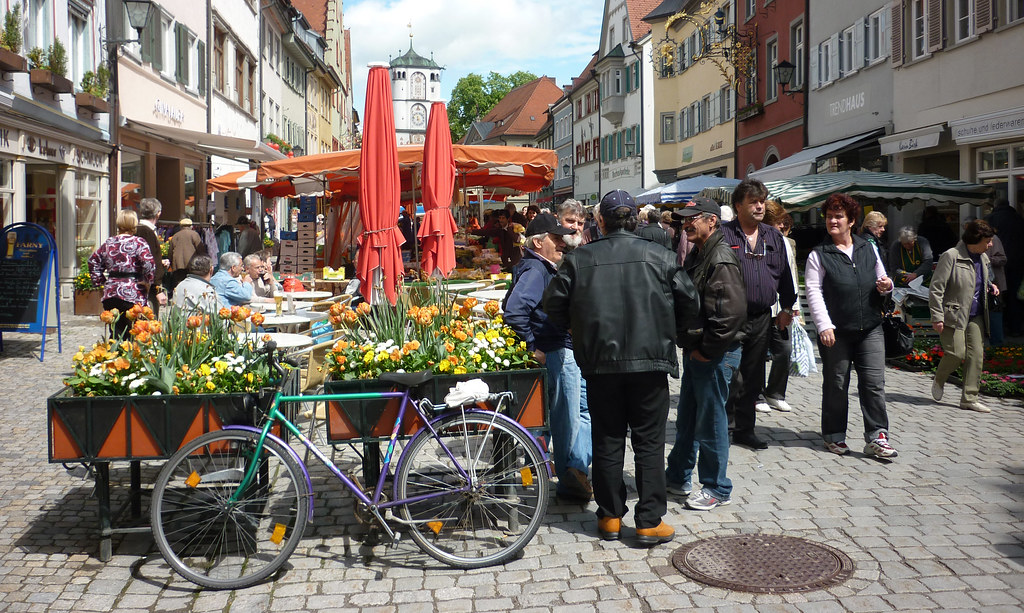
Europeans, selfishly enjoying not working
Why then, all the excitement for Bernie’s message not withstanding, are the majority of Democratic voters (so far) not buying it?
There certainly are some institutional disadvantages the Sanders campaign has had to contend with, but one of the major reasons, in my opinion, why Bernie now looks to be falling just short of the delegate threshold in the Democratic primary is that he has shied away just a bit too much from appealing to people’s self-interest.
Partanen assures Bernie and those who support him that his policy proposals, which have been proven to work in Nordic countries where people are just as selfish as in the United States, are not the least bit naive. And yet, I agree with her that the way he packaged his vision, while admittedly bold and courageous, turned out to be counterintuitive.
The problem is the way Sanders has talked about it. The way he’s embraced the term socialist has reinforced the American misunderstanding that universal social policies always require sacrifice for the good of others, and that such policies are anathema to the entrepreneurial, individualistic American spirit. It’s actually the other way around. For people to support a Nordic-style approach is not an act of altruism but of self-promotion. It’s also the future.
Europeans certainly don’t cringe at the term socialism the way Americans do, but speaking from my own experience in Germany, socialism is not exactly en vogue. In fact, most Europeans are pretty darn capitalistic. As Partanen points out, global capitalists from Ikea, H&M and Volvo to Lego, Carlsberg and Nokia are all Northern Europe based. Heck, my hometown alone is home to mega-corporations like Mercedez-Benz, Porsche, and Bosch. Europeans love making and spending money; in fact, the consumption, waste and traffic I see back home often feels excessive to me when I visit.
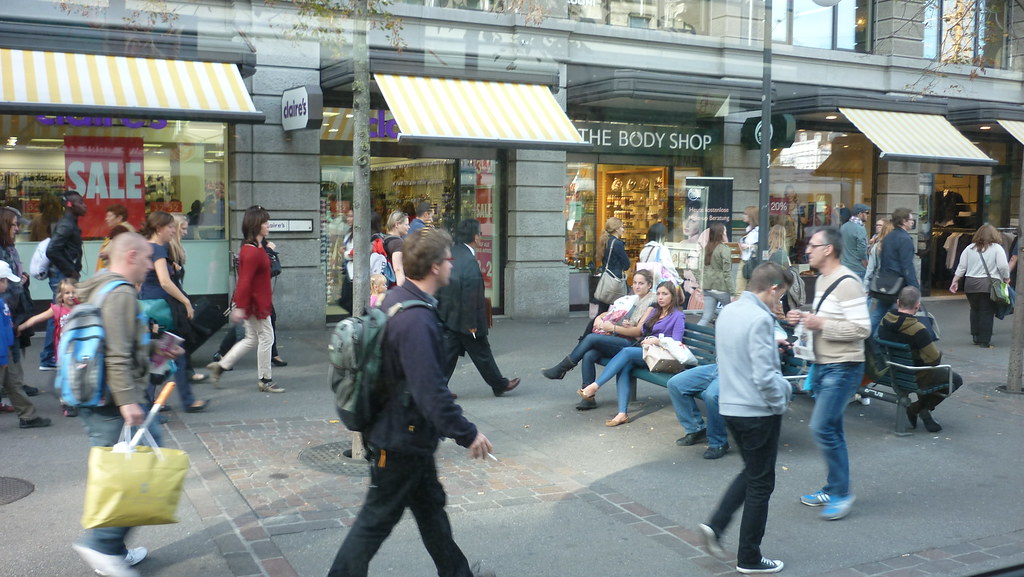
Europeans engaging in one of their favorite pastimes: buying stuff
That doesn’t mean that the individual policies that also happen to fit into a socialist philosophy aren’t popular. In fact, as mentioned above, things like universal health care, free college, or parental leave are beyond popular — they’re just standard. They simply make good old-fashioned selfish fiscal sense for everybody. Having an intimately-nurtured, educated, healthy, and well-rested general population is ultimately so much cheaper and more advantageous for everyone, both individuals and businesses. The fewer people that fall through the cracks, the less expensive the societal burden to carry for everyone else. It is notable that a proposal for a Universal Basic Income (UBI) for every citizen is currently not only being considered in Finland, but gaining steam right here in America, even among Conservatives, for its appeal to reduce government spending and intrusion while reducing poverty.
But here’s the thing: you don’t need socialism to create this kind of equity that makes your personal life better. As Partanen points out:
Americans are not wrong to abhor the specters of socialism and big government. In fact, as a proud Finn, I often like to remind my American friends that my countrymen in Finland fought two brutal wars against the Soviet Union to preserve Finland’s freedom and independence against socialism. No one wants to live in a society that doesn’t support individual liberty, entrepreneurship, and open markets. But the truth is that free-market capitalism and universal social policies go well together—this isn’t about big government, it’s about smart government.
And so this is where I think Bernie Sanders is behind the times: Socialism, democratic or not, is pretty passé in Northern Europe. Don’t believe me? Just look at the most recent election results for the Democratic Socialist parties in those Nordic countries, with Germany thrown in for good measure:
Finland: Left Alliance 7.1% (2015)
Sweden: Left Party 5.7% (2014)
Norway: Socialist Left 4.1% (2013)
Denmark: Red-Green Alliance 7.8% (2015)
Germany: The Left 8.6% (2013)
Basically, no party that calls itself socialist breaks 10% of the vote anymore these days. All those great “socialist” things like paid family leave, better public schools, and affordable day care, health care and college for all (which happen to also be part of Hillary Clinton’s platform) are pretty much supported by the main centrist parties like the Social Democrats and Christian Democrats. While socialism is just another label that means different things to different people, I still don’t understand why Bernie chose to use the Democratic Socialism identification in conjunction with Northern European models when it was neither necessary nor accurate.
Certainly, it’s an honorable mission to reclaim a term that has been so maligned during the latter half of the 20th century. And I get that the younger generation couldn’t care less whether you call something socialist or not. But exactly because millennials — whether they’re American or European — don’t care what you call it I don’t understand why Bernie felt the need to climb that hill when he could have framed the exact same platform in more contemporary terms. For example, if he had run as a Social Democrat in the Northern European mold, I think he not only would have gained more open ears among the Democratic Party’s faithfuls to win the primaries but put himself in a much more favorable position for a general election contest.
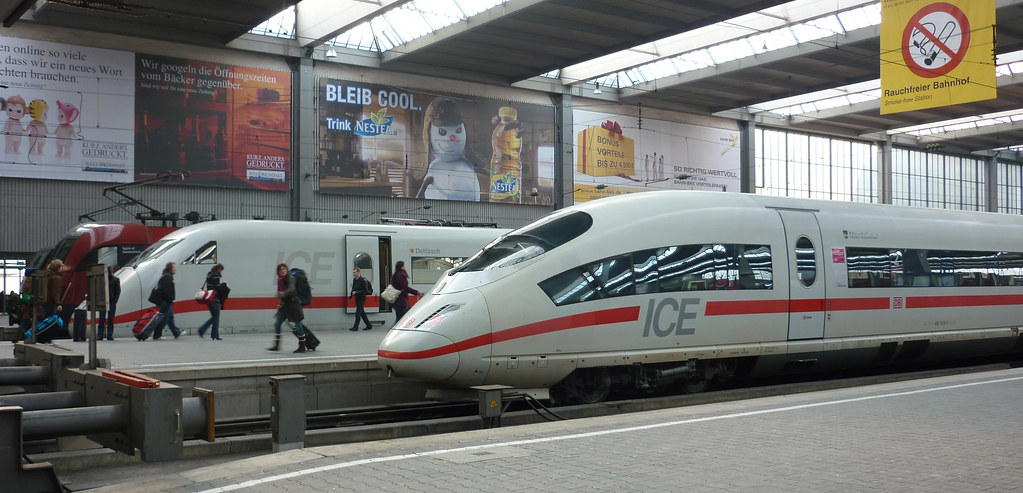
Socialism? Or just getting around faster?
Assuming Bernie will be unable to stage a miraculous comeback after this week’s New York primary, where does this leave the movement that has been propelling him thus far?
In some ways, Bernie falling short of the nomination may be a blessing in disguise, as his inspiring campaign has created a huge opening for — as Daly Kos’ Meteor Blades posits — 100s, 1000s, or even 10000s of newly energized citizens to step into. If this coalition of new change seekers and seasoned activists can sustain the “street fight” while at the same time transforming that energy into a broadening and long-term electoral fight, then the bright light that is Bernie Power will ultimately become known as the catalyst that sparked an epochal movement. Conversely, if people walk away and stop putting new logs on the Bernie flame because they couldn’t get it high enough the first time, it will fizzle, or perhaps worse, a few stray embers will set off random forest fires.
This brings me back to the renewable energy analogy. Allow me to use my native Germany and its much-celebrated Energiewende (energy transition) as an example of how to harness an extraordinary burst of activist, anti-establishment energy into a healthy, well distributed and gradually expanding base of power, both political and social, which in this case is also fueling an energy revolution quite literally.
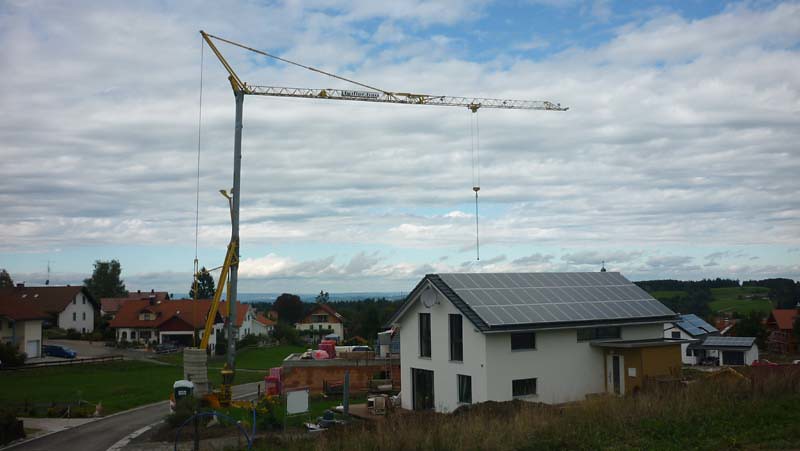
Building a new grid, one step at a time
By now, we all have become accustomed to seeing photos of solar roofs and reading stories of record-setting renewable energy usage out of Germany. However, what most people aren’t aware of is that this revolution transition did not happen overnight but is the result of almost four decades of grassroots activism and political fights filled with a plethora of setbacks, compromises, big events, and small steps forward. You can check out the specific milestones for yourself, but suffice it to say that to get from the oil crisis and the birth of the anti-nuclear movement in the early 1970s to a center-right chancellor (Angela Merkel) finalizing the phase out of nuclear power and making an aggressive push for an eventual transition to 100% renewable energy in the early 2010s was as far from an easy and seamless task as one could imagine.
There are many political parallels of this 40 year odyssey as it relates to Bernie and the issue of economic inequality he is fighting for an ocean and several decades apart, despite the differences between the German multi-party parliamentary and the American two-party systems. In many ways the anti-establishment political Zeitgeist embodied by Bernie Sanders resembles that of the German Green Party, which was founded and quickly entered a number of state parliaments in the early 1980s, culminating in its 1983 election to the federal parliament as a somewhat eccentric and often belittled newcomer. Sound familiar?
In 1986, the meltdown at the Chernobyl reactor catapulted the core issues of the Green Party — including the dangers of nuclear energy and the need for renewable alternatives — into the German mainstream in the same way the 2008 crash would awake the American public to the extreme inequities in their economic system 20 years later. The Greens’ ensuing popularity increased their share of the vote in the 1987 federal election, but their meteoric rise also forced them to address a question that had been simmering between the two factions in the party, the Realos (Realists) and the Fundis (Fundamentalists): Should we work within the system and form coalitions with the Social Democrats, or is compromising with any of the big-tent parties akin to abandoning our principles?
This is a similar junction Bernie and his supporters find themselves in right now (or once all the primary votes are counted, pending a major electoral earthquake). Do you go Fundi by refusing to join the Democratic big tent you perceive to be too systemically compromised to bring about any meaningful change? Or do you go Realo by getting on board as the junior coalition partner with the party to your right, working towards amplifying your agenda little by little within that power arrangement?
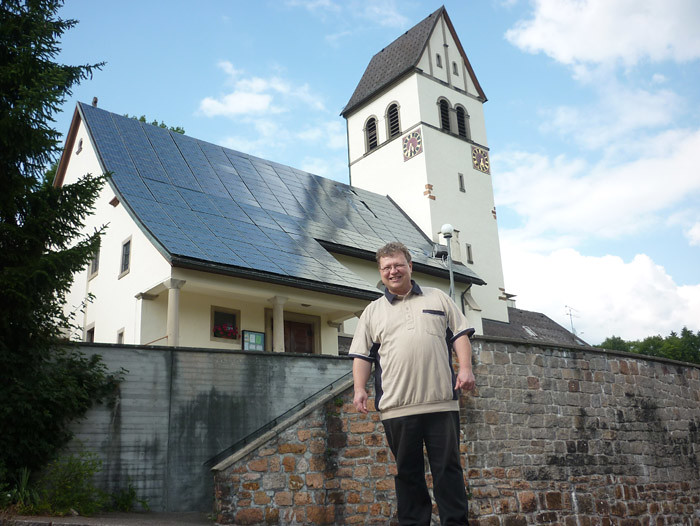
Getting your pastors onboard is a good sign that the coalition has broadened.
I don’t know what will happen, but I can tell you what happened in Germany: The Realos eventually prevailed, and under the leadership of Joschka Fischer, who would go on to become Germany’s first Green Vice-Chancellor and Foreign Minister (famously telling Donald Rumsfeld “Sorry, I’m not convinced” in the run-up to the Iraq war) as a junior coalition partner with the Social Democrats, they played an important role in shaping the energy transition, including the 2000 Renewable Energy Sources Act that stipulated significant, fixed feed-in tariffs for renewable energy production and priority for green energy in the energy markets.
By the time Angela Merkel came into power in 2005, the wheels for a complete infrastructural energy shift had been set in motion, leaving her conservative coalition no choice but to keep pursuing the renewable path. By the time the Fukushima nuclear reactor disaster occurred in 2011, it was simply a calculation of political expediency for Merkel to authorize the final phase out of nuclear power in Germany and commit to ambitious targets of 80% of national renewable electricity and 60% of national renewable energy by 2050 that would include a complete transformation of the power grid.
At the same time the Green Party kept working within the system to make its key issues cornerstones of the national debate, citizens and communities all across the country kept pushing local initiatives and candidates to build the widespread grassroots support needed to give national politicians cover to push for ever more bold and systemic change.
For example, groups like the Energy Rebels in the small black forest town of Schönau started their own renewable energy cooperatives and became powerful and effective advocates for a fundamental transformation of how things are done in Germany. Citizens began running in local elections as Greens or other progressive candidates, filling more and more seats in city and state governments. Most recently, my own notoriously conservative state of Baden-Württemberg reelected its Green governor, making the Green Party a senior coalition partner with the center-right CDU.
Obviously, there have been setbacks and less than perfect compromises in the German Greens’ flirtations with the halls of power, but warts and all I think it can be said that taking the long view has served the overarching goal of making the deeper structural changes to create a new playing field in the energy sector remarkably well. Basically, what once was considered a revolutionary hippie fantasy has now become completely mainstream. The primary purpose of solar and wind energy is no longer to save the world (though a nice “side benefit”) but to save money. For better or worse, the appeal of personal gain is what propelled the issue of renewable energy from the activist fringe into the German mainstream, from where it has rippled across the world.
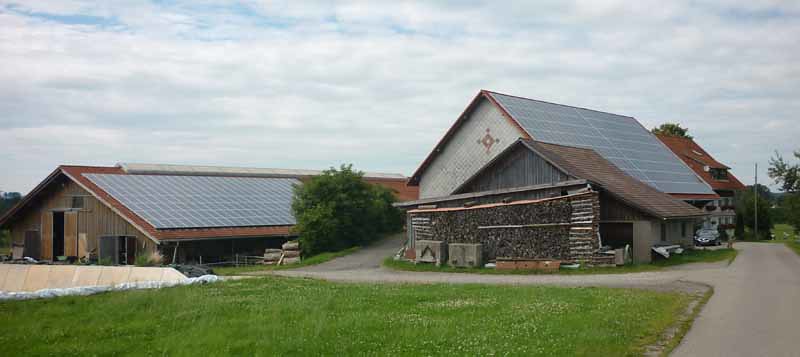
“Honey, our barn roof could help us pay the bills!”
While the US winner-take-all electoral system is not set up to accommodate third parties in a constructive way, I think the Bernie Sanders campaign and its broad appeal to deeper systemic changes offers a huge potential to affect American politics in the long run, not only within the Democratic Party, but across all party lines. Similar to the German Green movement of the 1980s, one of the key questions will be whether this sudden burst of progressive energy can be sustained in lasting and effective ways, and for that to happen Bernie and his passionate supporters need to build the kind of political grid from the bottom up that will store and distribute this powerful renewable Bernergie they have harnessed.
Personally, I don’t think it has to be a choice between going Realo and Fundi, but rather about applying each of them in strategic and smart ways. When it comes to the upcoming 2016 election, there is nothing to be gained for Bernie Sanders to oppose Hillary Clinton beyond the last primary, or for his supporters to refuse to vote for or actively work against her in November. It’ll be much more effective to leverage the political clout gained during this primary season in a constructively critical yet mutually supportive intra-party coalition. At the same time, it’ll be vitally important to continue pushing for the issues raised in this campaign through new and expanded grassroots movements, as well as the pursuit of local and state offices by this new wave of politically engaged constituents.
There is nothing that says you can’t be exceedingly idealistic at heart while also picking your battles wisely. In fact, I’d argue it’s the most effective way to align current reality with your own vision of the change you seek. For in the end, making the world, or your country, or your community a better place for everyone is the ultimate act of selfishness in the eyes of an idealist.
– All photos by Sven Eberlein
– Crossposted at Daily Kos







